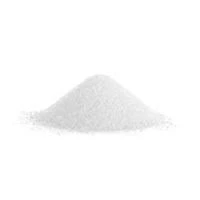
Understanding the Role of Sodium Bicarbonate in Acid-Base Reactions and Its Applications
The Role of Sodium Bicarbonate in Acid-Base Chemistry
Sodium bicarbonate, commonly known as baking soda, is a versatile compound with the chemical formula NaHCO₃. It plays a significant role in various chemical reactions, particularly in acid-base chemistry. Its ability to act as a mild base makes it a key player in numerous applications, from culinary uses to medical treatments and even environmental science. This article explores the multifaceted role of sodium bicarbonate in managing acidity and its broader implications in everyday life.
Understanding Acid-Base Reactions
At its core, acid-base chemistry revolves around the transfer of protons (H⁺ ions) between substances. Acids are substances that donate protons, whereas bases accept them. Sodium bicarbonate is classified as a weak base, meaning it can neutralize acids by reacting with them to form water and carbon dioxide. This reaction can be observed in various contexts, such as cooking, where it helps to leaven bread, and in antacid formulations, where it alleviates heartburn by neutralizing excess stomach acid.
Culinary Applications
In the kitchen, sodium bicarbonate is primarily used as a leavening agent in baking. When combined with an acid, such as vinegar or buttermilk, sodium bicarbonate releases carbon dioxide gas, which causes doughs and batters to rise. This reaction not only contributes to the texture and volume of baked goods but also affects their flavor. The resultant carbon dioxide bubbles create a light, airy structure, making cookies, cakes, and breads more palatable.
Medical Uses
sodium bicarbonate acid

Sodium bicarbonate's antacid properties make it a common ingredient in over-the-counter medications for managing heartburn and indigestion. By neutralizing stomach acid, it provides quick relief from discomfort. Additionally, sodium bicarbonate is sometimes used in medical settings to treat acidosis, a condition where the body becomes too acidic. In such cases, administering sodium bicarbonate can help restore the body's pH to a more alkaline state, thereby improving overall physiological balance.
Environmental Applications
Beyond its culinary and medical uses, sodium bicarbonate has significant applications in environmental science. It is often used to treat acidic waters, such as those found in mining sites or areas affected by acid rain. When introduced into these environments, sodium bicarbonate reacts with excess acids, effectively raising the pH and enhancing water quality. This neutralization process is crucial for the sustainability of aquatic ecosystems and the organisms that inhabit them.
Household Uses
In addition to its industrial and scientific applications, sodium bicarbonate is a staple in many households. Its mild abrasive properties make it an effective cleaning agent for various surfaces, from kitchen counters to bathroom tiles. Furthermore, its ability to neutralize odors makes it a popular choice for deodorizing carpets, refrigerators, and even shoes. Many people rely on this inexpensive and eco-friendly alternative to commercial cleaning products, promoting a healthier living environment.
Conclusion
In summary, sodium bicarbonate is a remarkable compound with a wide range of applications across different domains. Its fundamental role as a mild base allows it to participate in various chemical reactions, including those essential for cooking, medical treatments, environmental cleanup, and household tasks. Understanding the significance of sodium bicarbonate in acid-base chemistry not only highlights its versatility but also emphasizes its importance in our everyday lives. Whether in the form of a baked cake, a soothing antacid, or a household cleaner, sodium bicarbonate continues to demonstrate its invaluable impact on health, environment, and cuisine.
-
Why Glacial Acetic Acid Food Grade Is Essential in FlavorNewsMay.26,2025
-
Surging Export Growth of Food Additives in ChinaNewsMay.26,2025
-
How Ammonium Nitrate Fertilizer Boosts Crop YieldsNewsMay.26,2025
-
How 1,2,3-Benzotriazole Shields Plastics from UV DegradationNewsMay.26,2025
-
Cyanide in Gold Mining: Protecting People and the PlanetNewsMay.26,2025
-
Aluminum Hydroxide in Modern Sunscreen FormulationsNewsMay.26,2025
-
Understanding Synthetic Rubber OptionsNewsApr.27,2025
Hebei Tenger Chemical Technology Co., Ltd. focuses on the chemical industry and is committed to the export service of chemical raw materials.
-

view more DiethanolisopropanolamineIn the ever-growing field of chemical solutions, diethanolisopropanolamine (DEIPA) stands out as a versatile and important compound. Due to its unique chemical structure and properties, DEIPA is of interest to various industries including construction, personal care, and agriculture. -

view more TriisopropanolamineTriisopropanolamine (TIPA) alkanol amine substance, is a kind of alcohol amine compound with amino and alcohol hydroxyl, and because of its molecules contains both amino and hydroxyl. -

view more Tetramethyl Thiuram DisulfideTetramethyl thiuram disulfide, also known as TMTD, is a white to light-yellow powder with a distinct sulfur-like odor. It is soluble in organic solvents such as benzene, acetone, and ethyl acetate, making it highly versatile for use in different formulations. TMTD is known for its excellent vulcanization acceleration properties, which makes it a key ingredient in the production of rubber products. Additionally, it acts as an effective fungicide and bactericide, making it valuable in agricultural applications. Its high purity and stability ensure consistent performance, making it a preferred choice for manufacturers across various industries.











